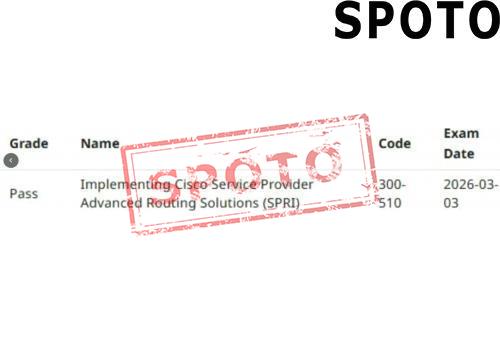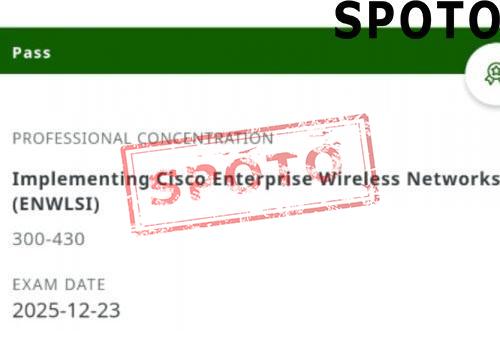
Table of Contents
Information technology and data services frequently develop swiftly as technologies advance. Data center employees may attend certification courses to upgrade their skill set to maintain servers, networks, and computer systems operating efficiently. There is probably a certification choice that fits your goals, whether you want to learn the fundamentals or work closely with a particular subject.
Professionals who can put effective solutions into place in enterprise-class data centers are needed to create data of the enterprise scale. You may demonstrate that you have the abilities required to manage a thriving data center by holding a Cisco CCNP Data Centre certification.
The Evolution of Data Centers:
Data centers have evolved from simple server rooms to complex infrastructures that house a pack of servers, storage systems, networking equipment, and more. With the rise of cloud computing, edge computing, and the Internet of Things (IoT), data centers have become even more critical. They serve as the backbone of digital operations, storing, processing, and transmitting vast amounts of data for applications ranging from e-commerce to scientific research.
The data center's strategic role is:
- As the department in charge of delivering, managing, and administering all the computing and storage resources that house the organization's mission-critical applications and data, a company's data center department often bears the brunt of handling all these demands.
Longer-term planning frequently gets in the way of a typical midsize firm due to the day-to-day needs of the organization. It is a profound challenge for the IT department since it promotes rash judgments that frequently lead to the installation of ad hoc, unrelated systems at the departmental level that may not be the best option for the business.
The Need for Efficiency:
As the demand for data processing and storage continues to surge, the efficiency of data centers becomes paramount. Inefficient data centers can lead to increased energy consumption, higher operational costs, and limited scalability. Environmental concerns have made energy efficiency crucial for data centers to support a company's sustainability efforts.
Efficient data center management involves optimizing hardware and software resources, minimizing downtime, and ensuring swift disaster recovery. It also entails effective utilization of space, cooling, and power resources to reduce the overall environmental footprint.
Cisco's Contribution to Data Center Efficiency:
Cisco's data center solutions, including the Cisco Unified Computing System (UCS) and Cisco Nexus switches, have set new standards in data center architecture. These solutions emphasize virtualization, automation, and scalability to meet the demands of modern data-intensive applications.
Cisco UCS integrates computing, networking, and storage resources into a single cohesive system. It simplifies data center operations through centralized management and automation, enabling administrators to deploy, configure, and manage resources. Cisco Nexus switches, on the other hand, provide high-performance, low-latency networking solutions that facilitate seamless communication within data centers.
Empowering Data Center Professionals with Cisco Training:
Cisco offers a range of training programs designed to equip individuals with the expertise required to develop and manage efficient data centers. These programs cover various topics, from data center design and architecture to advanced data center technologies. Here are key areas covered in Cisco data center training:
- Data Center Design: Professionals learn the principles of designing a data center from the ground up, including references for power, cooling, redundancy, and security.
- Virtualization: Virtualization is a cornerstone of modern data centers. Training covers the implementation and management of virtual machines, enabling efficient resource utilization and scalability.
- Automation: Automation streamlines data center operations by reducing manual tasks. Training provides insights into tools and techniques for automating routine processes.
- Network Fabric: Cisco's data center solutions focus on creating a flexible and scalable network fabric. Professionals learn how to deploy and manage this fabric for optimal performance.
- Storage Solutions: Data centers rely on efficient storage solutions. Training delves into storage technologies, including Fibre Channel, Network-Attached Storage (NAS), and Storage Area Network (SAN).
Advantages of Cisco Training for Data Centers:
- Expertise: Cisco training provides professionals with comprehensive knowledge of data center technologies. It enables them to make informed decisions when designing, implementing, and managing data centers.
- Efficiency: Efficiently managed data centers lead to cost savings, reduced downtime, and better resource utilization. Cisco training equips professionals to optimize operations.
- Scalability: Modern data centers need to scale quickly and seamlessly. Training prepares professionals to design and manage data centers that can accommodate growth.
- Disaster Recovery: Data center downtime can lead to significant losses. Cisco training covers disaster recovery strategies, ensuring data is protected and quickly recoverable.
- Certifications: Cisco offers data center certifications that validate a professional's expertise. These certifications are recognized globally and can enhance career prospects.
- More employment possibilities: In an IT industry study conducted by Global Knowledge, Cisco Data Centre certifications were found to be among the most in demand.
- Increased pay: An individual with a Cisco Data Centre certification makes an average yearly income of $90,000.
- Higher job satisfaction: Working on tough projects and staying current with the newest technology are opportunities offered by Cisco Data Centre certifications.
The Cisco Training Experience:
Cisco's data center training offers a structured learning path that accommodates professionals with varying levels of expertise. Whether you're a beginner or an experienced data center professional, Cisco training has something to offer:
- Foundational Courses: Beginners can start with foundational courses that cover the basics of data center technologies, providing a vital knowledge base.
- Advanced Tracks: Experienced professionals can dive into advanced topics such as data center design, virtualization, and automation, gaining insights that enhance their expertise.
- Hands-On Labs: Cisco training often includes hands-on labs that simulate real-world scenarios. This practical experience is invaluable for skill application.
- Certification Paths: Cisco offers data center certifications like the Cisco Certified Network Professional Data Center (CCNP Data Center) certification. Training prepares individuals for certification exams, validating their skills.










